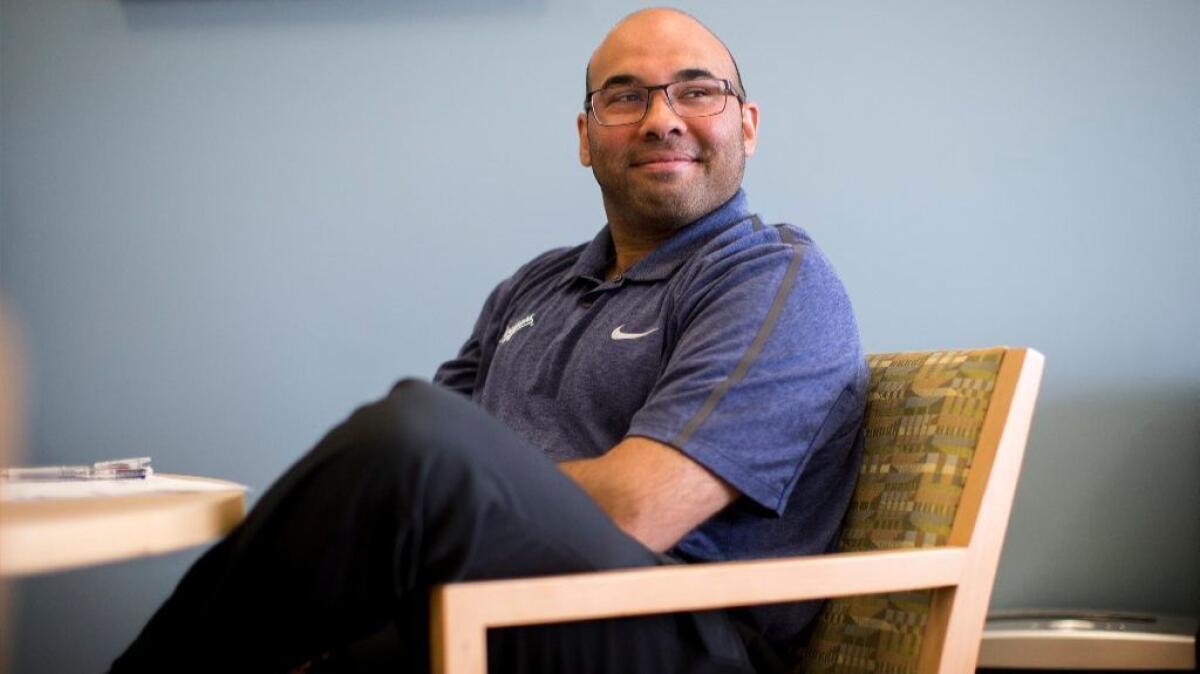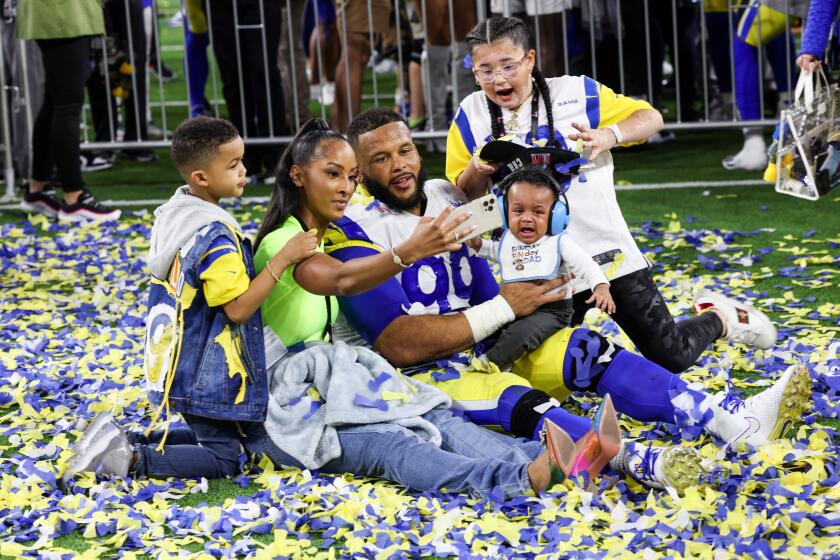Column: Spending on international players sets up trade deadline moves for Dodgers

The three o’clock hour was underway, and so were the conference calls with the general managers. The trade deadline had passed a couple hours earlier, and now was the time for the Dodgers and Angels to explain their moves.
At 3:15, Farhan Zaidi talked about the Dodgers’ trade for Yu Darvish.
At 3:30, Billy Eppler talked about the Angels’ trade for Luis Madero.
This is not a knock on Eppler. That proverb about making lemonade when life gives you lemons? Eppler, in his second season as Angels general manager, does not even have the lemons.
At Monday’s deadline, he traded reliever David Hernandez to the Arizona Diamondbacks for Madero. Eppler thus flipped a player he bought from the Atlanta Braves three months ago into a pitcher not ranked among the Diamondbacks’ top 66 minor leaguers by Baseball America.
There are no prospect labels at that level. The best the Angels can say is that they have one more live arm than they did last offseason.
The Dodgers stunned the baseball world Monday with their trade for Darvish, acquiring what they believed to be the best starting pitcher available without surrendering either of their two elite prospects. How they did it speaks to the gaping talent discrepancy between the two Southland teams.
The Frank McCourt years are fading into the history books now, but remember this: The millions that McCourt and his ex-wife Jamie drained from the Dodgers treasury for private jets and side-by-side mansions and the deep thoughts of a Russian physicist and healer could have been used to buy talent for the baseball team.
In 2008, according to Baseball America, major league clubs combined to sign 115 international amateurs for bonuses of more than $100,000 each. The Dodgers did not sign one.
The team that had blazed trails in Asia and Latin America had simply abandoned them. Rival teams were only too happy that the famous Dodgers, the team to which so many international players aspired, the one that opened the first academy in the Dominican Republic, had taken their checkbook and gone home.
In 2012, when McCourt sold the Dodgers to Guggenheim Baseball out of bankruptcy court, the new owners made headlines about money: a quarter-billion dollars to acquire Adrian Gonzalez and three other players in a trade, another third of a billion in commitments to Clayton Kershaw and Zack Greinke.
No one listened, but the owners insisted those were short-term moves. The long-term strategy was to rebuild the Dodgers’ storied player pipeline, and money flowed into scouting and player development.
In 2015, the Dodgers signed Cuban infielder Hector Olivera for a $28-million bonus, then traded him to Atlanta two months later. The return package included pitcher Alex Wood, an All-Star this season, and infield prospect Jose Peraza, later traded to the Cincinnati Reds in a six-player deal that brought pitching prospect Frankie Montas to Los Angeles. The Dodgers last summer flipped Montas for pitcher Rich Hill.
The investment in Olivera, then, facilitated the arrival of two of the three starters expected to follow Kershaw in the October rotation. To get Darvish, the Dodgers gave up three prospects, one of whom, infielder Brendon Davis, was a fifth-round draft pick signed for $600,000 above the bonus the league recommended for his slot.
The Dodgers also picked up two relievers Monday. For Tony Watson, they gave up two teenagers signed from the Dominican Republic. For Tony Cingrani, they swapped a catcher they signed from Curacao.
“The kind of scouting and player development infrastructure you have can pay off in terms of guys rising to the big leagues and impacting your team, or sometimes being able to make trades like this,” general manager Farhan Zaidi said. “It’s certainly a credit to our scouting and player development staffs for giving us the players and prospect capital we needed to pull off these deals today.”
The Dodgers farm system was not decimated by trading six minor leaguers Monday. It was hardly dented, to be sure, thanks to the resources poured into the system by the team’s owners.
The Angels drained their international budget two years ago on one player, infielder Roberto Baldoquin. He’s 23, and the Angels had to demote him to the Midwest League so he could hit .250.
The Dodgers have quality and quantity in their minor league system. The Angels have neither.
They’re trying, but Madero is in his fourth year of pro ball. He has yet to advance to Class A. There might be no better way to prove the maxim that baseball is not a one-man sport than to have the best player in baseball on your team and have to talk up Luis Madero at the trade deadline.
Follow Bill Shaikin on Twitter @BillShaikin
More to Read
Go beyond the scoreboard
Get the latest on L.A.'s teams in the daily Sports Report newsletter.
You may occasionally receive promotional content from the Los Angeles Times.











